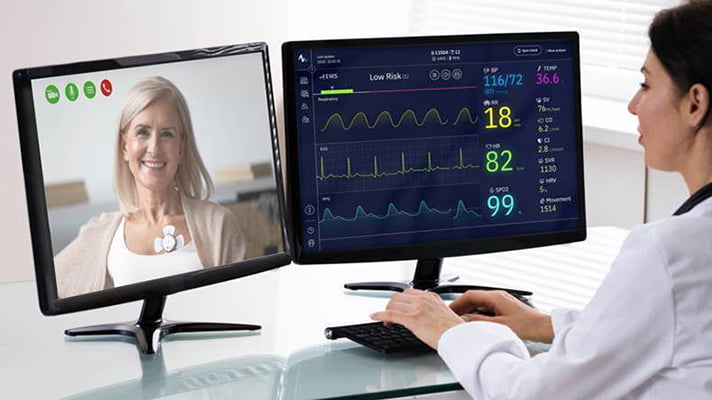A disposable chest monitor developed in Israel will monitor patients’ vital signs and wirelessly send updates to the cloud every five minutes.
It will provide doctors with warnings that the condition of a patient in the hospital or at home may deteriorate before they actually do.
Biobeat, which develops wearable health-monitoring devices, tested its solution in a study of 521 participants, 361 of which were in general hospital wards. It was able to flag patients at a high risk of deterioration 77 percent of the time.
The patients wore the disposable, non-invasive, wireless devices for three days after being admitted to the hospital.
They collected data from 13 different vital signs every five minutes and automatically transmitted it to a cloud platform, accessible to the physicians.
Measurements from patients are currently collected once or twice a day using multiple tests to determine how ill they are, a system that has a 20 percent success rate by comparison.
The standard National Early Warning Score (NEWS) measures five vital signs: respiratory rate, oxygen saturation, temperature, systolic blood pressure (pressure in your arteries when your heart beats), pulse rate, and level of consciousness.
Sign up for our free weekly newsletter
SubscribeBiobeat’s device on the other hand uses its own real-time warning score that measures 13 vital signs, including the five that are measured by the NEWS, as well as cardiac output (amount of blood pumped by the heart per minute), diastolic blood pressure (pressure in the arteries when your heart rests between beats), and others.
“Biobeat’s unique Multi-Parameter Real Time Warning Score was developed using both artificial intelligence and physicians’ inputs seeking more precise and frequent monitoring tools for predicting patient health deterioration,” said Prof. Arik Eisenkraft, Chief Medical Officer of the company.
“Our disposable chest monitor, combined with our remote patient monitoring platform, allowed for early detection of high-risk deterioration more than 40 hours before deterioration occurred.
“There is tremendous potential to shift the patient monitoring paradigm for patients at risk of deterioration, and we look forward to further investigating the capabilities of our devices, our remote patient monitoring platform, and MPRT-WS to provide clinicians with continuous insights into patient health.”
The study was published in the peer-reviewed Frontiers in Physiology.
Biobeat was founded in 2016, and is headquartered in Petah Tikva, central Israel.
Related posts

Israeli AI Safety Tool Among TIME’S Best Inventions For 2024

TAU Team Discovers Mechanism To Eliminate Cancerous Tumors

Ashdod Port Investing In Startups As Part Of Innovation Strategy




Facebook comments